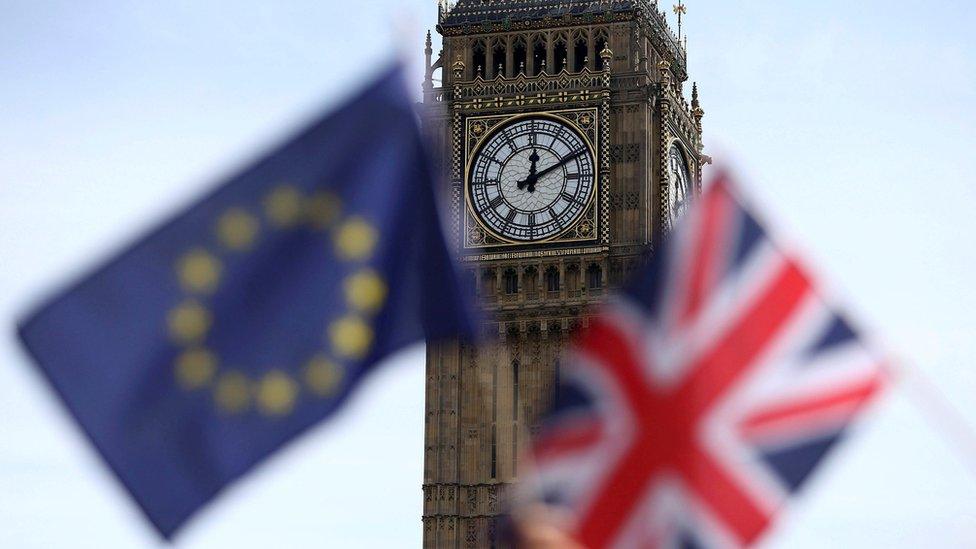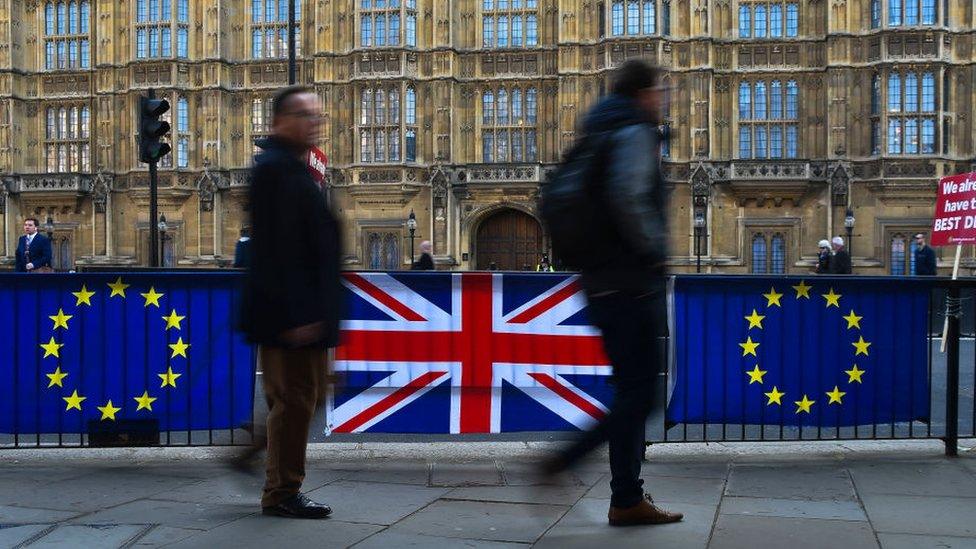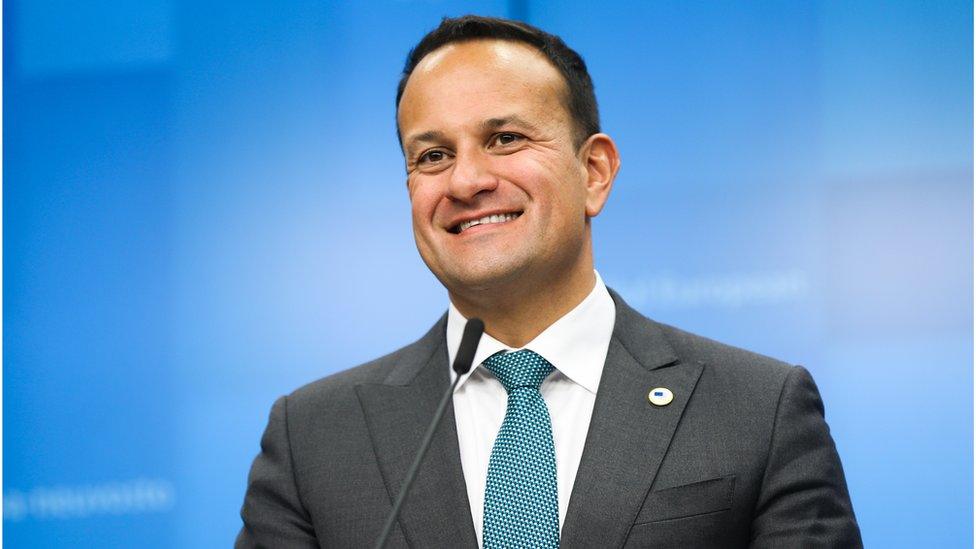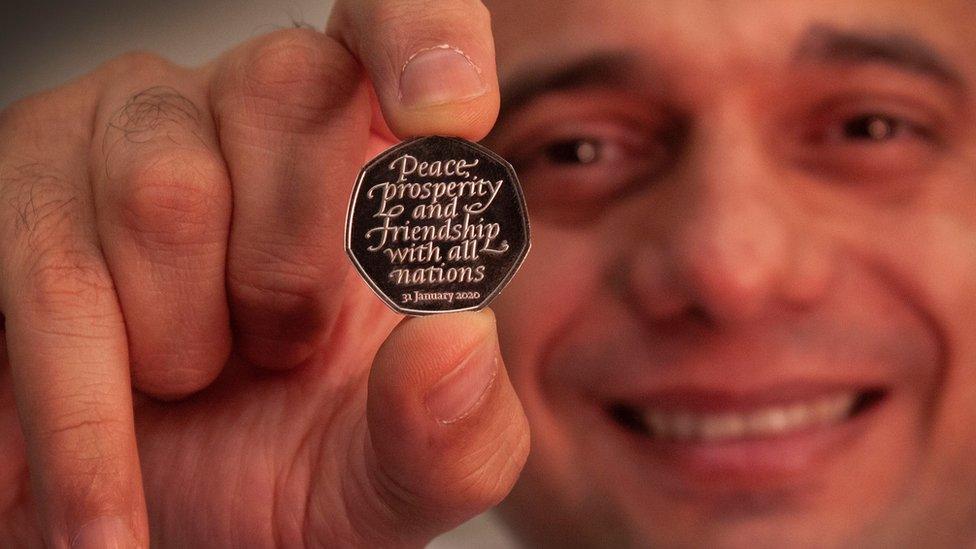Time is short as UK and EU try to define new relationship
- Published

The European Parliament has overwhelmingly backed the terms of the UK's departure from the EU
With the UK almost out of the EU a new phase of negotiations is set to begin with predictions that it will produce a new 'cliff edge' later this year.
"There's always a bit of brinkmanship with the European Union", former Brexit Secretary David Davis told Newsnight, "and we must be prepared for that".
On Wednesday the European Parliament ratified the withdrawal agreement, the last legal obstacle to Brexit. But while the so-called divorce deal has been done, the battle over the future relationship is just getting under way.
"The time is dramatically limited"
Adding to the likelihood of a crunch towards the end of 2020 (when the transition period under the agreement ratified expires) is the complexity of the consensus needed and the few months available to get it.
Danuta Huebner MEP, a former commissioner in Brussels and member of the European Parliament's Brexit Steering Group, notes "the time is dramatically limited", with there really only being eight months from the start of negotiations until October when any deal will have to be ratified by the EU.
Many think it's simply impossible for a treaty covering so many complex areas from trade to security to be done in this time.
So the scene is set for the first real battle of the talks, which is about how far the 20-30 separate topics under negotiation should be ranked in order of priority.
The EU has suggested it wants rapid agreement on certain topics, such as agriculture and fishing, but the UK is determined not to concede on these areas early, and, as Mr Davis tells Newsnight, "they need to set them up and do them all in parallel".
As the discussions gather pace during the spring they will likely centre on the price the EU wants to exact for the 'Zero Tariff, Zero Quota' model of trade proposed by Boris Johnson.
European Parliament approves Brexit agreement
Mavericks to mainstream: The long campaign for Brexit
'Zero tariff, zero quota' aim for Brexit talks
These are the known as the 'Level Playing Field' provisions in which the EU will try to tie the UK to European regulations on matters like environmental protection, labour law, and state aid.
On the EU side there are differing views about how far they should simply try to commit the UK not to backslide on existing regulation ('non-regression' in talks jargon) or embrace the more ambitious objective of keeping the UK tied to these rules on a continuing basis as they evolve ('dynamic alignment').
The chances of the UK agreeing to the latter are, "just about zero", former Brexit Secretary David Davis told Newsnight.
The possibility for deadlock on this central issue leads many who've been involved in the diplomacy to assume that the UK may prefer a 'no-deal' outcome or accept only limited agreement as the time allotted for the talks runs out at the end of the year.
The EU may choose to 'stop the clock' and allow the UK to run on with access to its market while final details are hammered out.
Sir Simon Fraser, formerly head of the diplomatic service tells Newsnight there could be, "a de facto and even unspoken blurring of the end of the transition period …where you have a deal but you recognise you've got to keep on negotiating some other things".
You can watch Newsnight on BBC Two at 22:30 on weekdays. Catch up on iPlayer, subscribe to the programme on YouTube and follow it on Twitter.
- Published26 January 2020

- Published27 January 2020

- Published26 January 2020

